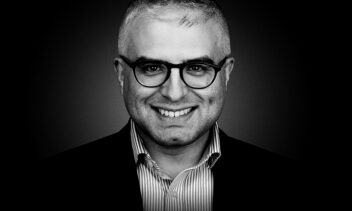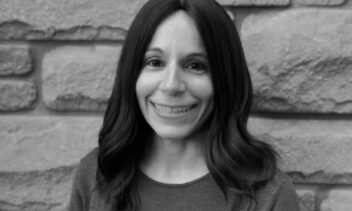This reader considers the work of Dr. Judith Herman, psychiatrist, researcher, author, and activist. Dr. Herman’s approach to trauma has had a significant impact, and have forged a path forward for clinicians, researchers, and survivors. The material in this reader is sensitive and has to do with trauma, so take care in reading on. Click the link to receive the full PDF of this profile.

In the wake of a great trauma, how does the survivor tell their story? The challenges in finding one’s voice after experiencing a trauma are manifold. Our mind and bodies collaborate in protecting us by engaging the flight, fight, or freeze instincts, and recent research indicates that our coding of trauma events in our memory operates differently than our normative coding of everyday experience. This complicates one’s understanding of what they experienced, and the mind’s attempts at protecting itself from the harshness of its memories contributes to the difficulty of learning to speak to the pain of the event.
While these challenges are real, for a long time they were exacerbated by a medical establishment that saw trauma as an isolated experience, one largely local to the battlefield and combat victims. The contemporary understanding of an interrelationship between abuse, trauma, and the totality of one’s mental health is a relatively recent phenomenon, and for a long time people with mental illness were not asked about a history of trauma. Like in the mind, trauma was silenced in large part because it makes us uncomfortable to consider. It is far easier to write off a few bad people as abusers than it is to contend with the unfortunate ubiquity of trauma in this still-imperfect world.
Enter Dr. Judith Herman. Herman is a psychiatrist, researcher, and author, whose work on trauma and familial abuse has been foundational to the field. Herman’s writings have been hugely important among clinicians, researchers, and survivors of trauma. Herman is a founder of the Women’s Mental Health Collective, a professor of psychiatry at Harvard University Medical School, and the Director of Training at the Victims of Violence Program at Cambridge Health Alliance.
… only when we listen to the voices of survivors themselves that we can understand what is happening in our world.
As we consider the topic of abuse in the Jewish community, we turn to consider and appreciate those who brought the impact and import of trauma out of the shadows. In this reader, we honor the work of Dr. Judith Herman, with our introduction to Dr. Herman’s work, along with an interview with her about her life and work, followed by an article by Dr. Herman on “Recovery from psychological trauma,” from Psychology and Clinical Neurosciences. A note of warning: Some of this content might be triggering to our readers, so take care to read only if you feel up for it. Above all, these words are no replacement for working with a mental-health professional, so if you feel that you might have experienced anything like this, we urge you to reach out to a therapist. When the Jews were in Egypt, the Zohar tells us that the “word was in exile,” which speaks powerfully to the challenge of expressing ourselves that so many have in the most challenging of circumstances. We can all work to give voice who those voices are in exile, and to redeem the silence of this world. All of the articles will be included in the PDF, so remember to click the link to get the full reader.
An Introduction to Judith Herman
Judith Herman grew up in a secular Jewish home, although her father had grown up in an Orthodox home. Herman’s father was a professor of classics at CUNY, and her mother was a psychologist and psychoanalyst who taught and practiced. Herman came to trauma work in the field, after finding that a large number of patients that she had been working with had survived childhood sexual abuse, a fact that was largely ignored by their presiding doctors and mental-health professionals. This prompted Herman to start a group that brought together clinicians, researchers, and survivors of abuse to collaborate in talking and thinking about trauma. Herman began researching trauma, working with Bessel van der Kolk, author of The Body Keeps the Score, a psychiatrist who had been treating combat veterans. Herman’s writings on incest and abuse were passed around in manuscript form for years, at a time in which the long-term impact of trauma were little-appreciated by the medical establishment. Later, her book Trauma and Recovery: The Aftermath of Violence – from Domestic Abuse to Political Terror, in which Herman outlines her theory of recovery from trauma, became an instant classic, beloved by clinicians and survivors alike.
There are several strands to Herman’s work that are important to appreciate. Most broadly, Herman has been hugely important for the opening of the conversation around trauma in the medical world, and the increasing focus on the psychological and medical effects of trauma on the survivor of trauma. Herman brought the experience out of the shadows, giving voice to a huge group of people who had their voice taken from them. In Trauma and Recovery, Herman outlines three stages of recovery: Establishing trust, speaking the trauma narrative, and reconnecting with life. These stages are non-linear and non-exhaustive, and each survivor learns how to live in their own distinct and unique way, and are rather attempts at capturing a road towards healing.
It is no coincidence that Herman considers political terror side-by-side with familial abuse; although the experiences are different, there are shared themes, such as the challenge of one that underwent a profound trauma expressing the pain of what they experienced. One thinks of the years of silence that Elie Wiesel had before deciding to write about the Holocaust, and the place that the impossible relationships between silence, speech, testimony, and trauma had in post-Holocaust writers such as Nelly Sachs, Paul Celan, Edmond Jabes, and so many others. A growing body of research on Holocaust survivors, as well as the second and third generation survivors of the Holocaust, pioneered by scholars like Rachel Yehuda, has been indelibly influenced by Herman’s work. Herman has also been a staunch advocate for the classification of complex post-traumatic stress disorder as a disorder independent from post-traumatic stress disorder.
Above all, Herman helped the world remember that profound pain is not incidental or happenstance, but is often the result of systematic inequalities, and it is only when we listen to the voices of survivors themselves that we can understand what is happening in our world. This deep insight, gleaned from the deepest and darkest recesses of the mental health field, is vital for all of us, as we strive to build a safer and stronger world. If we are to address and prevent abuse in all of its forms, we must understand the experience of those who have been vulnerable to abuse.








